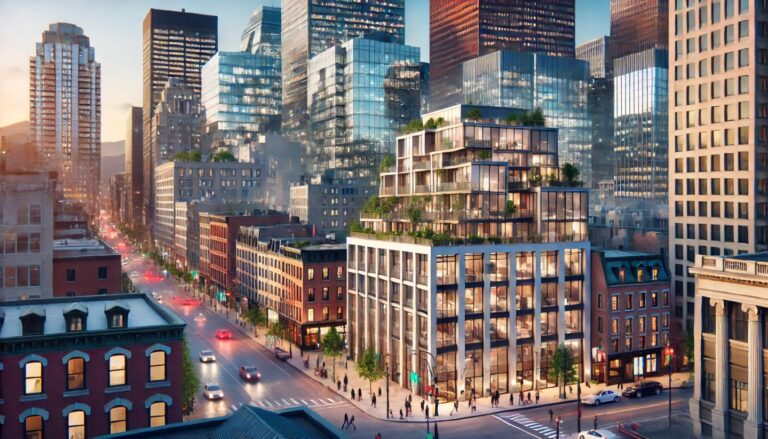New Regulations: The Silent Revolution in the Leasing Market
New Rules, New Realities
Commercial tenants in Montreal now have to play by new rules. From energy efficiency standards to accessibility requirements, the legal landscape is evolving at breakneck speed, reshaping the dynamic between landlords and tenants. These changes aren’t just bureaucratic tweaks—they impact costs, lease management, and even the profitability of rented spaces. A single oversight in a contract could cost businesses tens of thousands of dollars.
Montreal’s Energy Performance Regulations, in effect since 2023, enforce strict carbon footprint reduction measures for commercial buildings. Property owners must invest in energy-efficient upgrades or face penalties (https://www.environnement.gouv.qc.ca). For tenants, this often means increased operating costs being passed down in rental charges.
Commercial Leases: A Financial Tightrope
The financial landscape is also shifting for tenants. Quebec’s Bill 122 allows municipalities to impose variable tax rates based on a building’s environmental performance (https://www.assnat.qc.ca/fr/travaux-parlementaires/projets-loi/projet-loi-122-41-1.html).
In Montreal, this means landlords of less sustainable buildings will pay higher taxes—and they won’t absorb those costs alone. Tenants can expect rent hikes as property owners pass the burden onto them.
To complicate matters further, the 2024 revision of the Commercial Leasing Framework has given municipalities greater control over rent increases, particularly in rapidly gentrifying neighborhoods. In Griffintown and Mile-End, some businesses have seen their rents spike by 15% in a single year (https://www.cbc.ca).
Adapt or Renovate: Do Tenants Have a Choice?
New accessibility regulations are changing the game. As of January 2024, the Universal Accessibility Act requires all commercial spaces open to the public to be fully accessible—or face fines. This means ramps, elevators, and adapted restrooms are now mandatory.
The green transition is adding another layer of complexity. New leases increasingly include clauses requiring tenants to contribute to a building’s overall energy efficiency. These so-called “green leases” impose strict standards on energy consumption, waste management, and the use of sustainable materials.
Winners and Losers in the Regulatory Shift
The biggest winners? Landlords who anticipated these changes and modernized their buildings early. LEED and BOMA BEST-certified properties lease 20% faster and maintain higher occupancy rates than conventional buildings (https://www.bomabest.org).
For tenants, however, the transition can be a logistical and financial nightmare. Compliance costs add up quickly, making it crucial to renegotiate lease terms to avoid unexpected expenses.
Negotiate or Get Squeezed: Choose Your Side
Faced with these challenges, businesses need to be proactive. Carefully analyzing lease terms and including clauses that limit rent increases can prevent nasty surprises. Opting for properties that already meet new standards can also safeguard long-term investment. Montreal is evolving, and its commercial rental market is changing along with it. Regulations are tightening, costs are rising, but opportunities remain for those who know how to read between the lines and negotiate smartly. In this new reality, being a strategist beats being a spectator.






